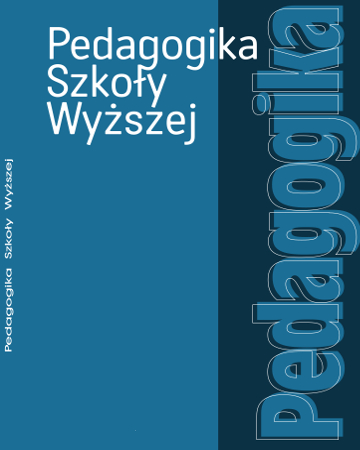
ISSN: 2083-4381
OAI
DOI: 10.18276/psw.2016.1-01


Lista wydań /
1/2016 (19)
Autorytaryzm akademicki, jego źródła, przejawy i (niektóre) konsekwencje; perspektywa realizmu krytycznego
| Autorzy: |
Maria
Czerepaniak-Walczak
Uniwersytet Szczeciński |
| Słowa kluczowe: | realizm krytyczny uniwersytet autorytet autorytaryzm |
| Data publikacji całości: | 2016 |
| Liczba stron: | 12 (11-22) |
Abstrakt
The aim of this text is preliminary analysis of issue of power in the higher education. As the theoretical framework of this analysis is a perspective of critical realism on the agency and the status of subjects: the individual and the collective. In the area of interest is the specificity of authoritarianism in social relations at universities in various fields of its operation designated by the Act Law on Higher Education (dated 27 July 2005. As amended. Changes). The focus is on the question: how conscious entities constitute objective social reality, including authoritarian and oppressive behavior of authority, and how these behaviors constitute conscious entities, arousing reactions of resistance and processes of emancipation? In order to exceed the one-way of determinism is sought answers rooted in the thesis of realism critical, namely, between the person and public awareness there is a simultaneous mutual transformation that preserves or changes both the person and the community, changes or reinforces the standards governing the relationship and understanding by subjects of their situation. Subjective perpetration, both primary and collective remains in relation to the academic authoritarianism in each field and level of interactions in HE.
Pobierz plik
Plik artykułu
Bibliografia
| 1. | Archer Margaret S. (2013), Człowieczeństwo. Problem sprawstwa, przekł. Agata Dziuban, Zakład Wyd. »NOMOS«, Kraków |
| 2. | Bhaskar Roy (2002), Reflections on Meta-Reality. Trancendence, Emancipation and Everyday Life, Sage Publ. New Delhi,/Thousand Oaks/London |
| 3. | Bourdieu Pierre (1984), Homo Academicus, Stanford University Press, Stanford |
| 4. | Czerepaniak-Walczak Maria (2008), Nie myśl, bądź posłuszny – dyskursy władzy w szkole, w: M. Dudzikowa, M. Czerepaniak-Walczak (red), Wychowanie. Pojęcia, procesy, konteksty, GWP Gdańsk |
| 5. | Freire Irene H., Boneva Bonka S. (2009), Motywacja do sprawowania władzy a motywacja do pomagania innym w: Annette Y. Lee-Chai, John A. Bargh (red.) (2009) Władza. Pokusy i zagrożenia,GWP, Gdańsk |